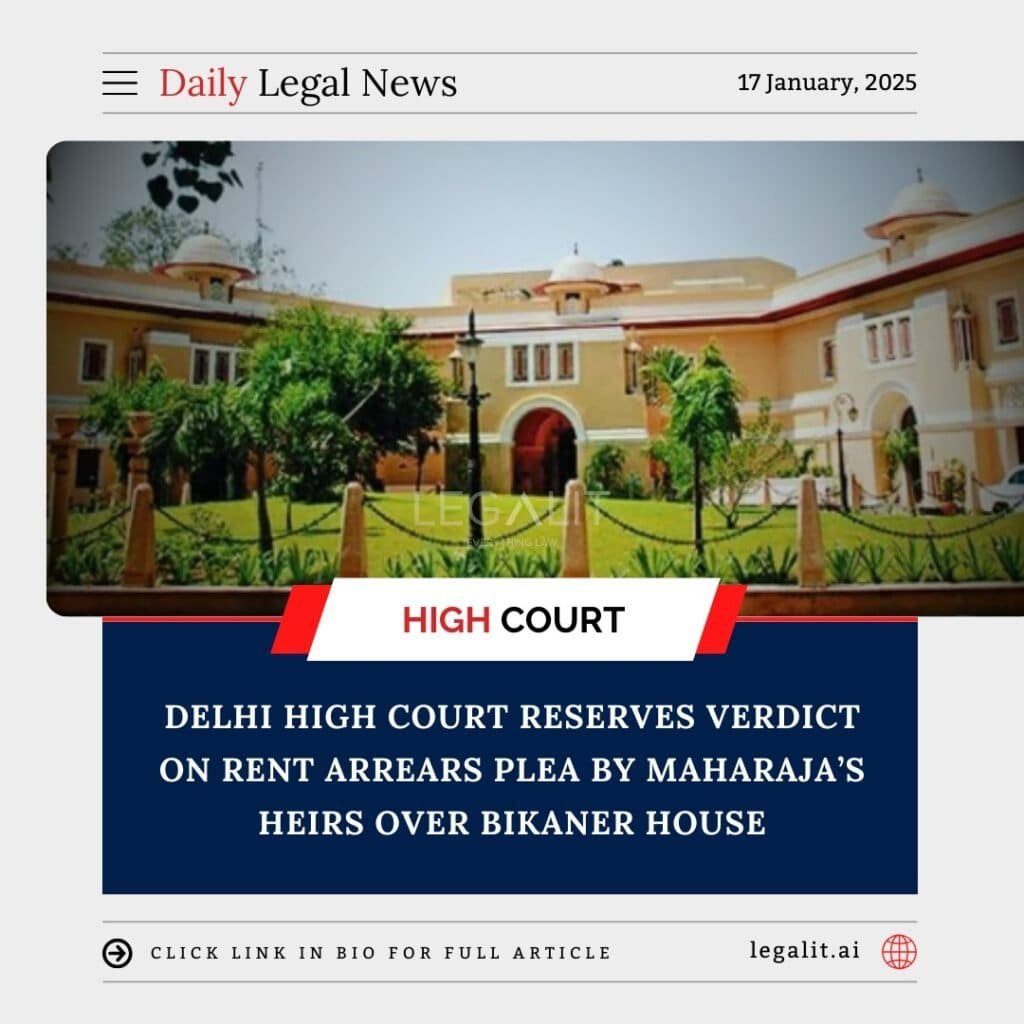
Background
The Delhi High Court has reserved its verdict in a legal battle concerning rent arrears for Bikaner House, a heritage property owned by the erstwhile princely state of Bikaner. The case was initiated by the heirs of the late Maharaja of Bikaner, seeking arrears and compensation from the government for using the property without paying appropriate rent.
Bikaner House, situated in an upscale area of New Delhi, has historical significance and has been under government control for several decades. The heirs alleged that the government utilized the property for administrative purposes and events without fulfilling its financial obligations as stipulated in prior agreements.
Arguments by the Heirs
The petitioners, representing the Maharaja’s lineage, argued that:
- Unpaid Rent: The government had not paid rent for Bikaner House for years, despite using the property extensively.
- Violation of Terms: The use of the property was in violation of agreements made post-independence, where arrangements for compensation to royal families for such properties were established.
- Heritage Value: The property, being a historical and cultural landmark, required maintenance, which was neglected by the government, adding to their grievances.
- Claim for Arrears: The petition demanded substantial arrears, along with interest, for the prolonged occupation of the property.
Government’s Response
The government countered these claims by presenting the following points:
- Legal Ownership: They contended that Bikaner House was acquired as part of the integration of princely states into independent India, and the government had the right to use it.
- Disputed Terms: The agreements cited by the heirs were either outdated or not applicable under current legal frameworks.
- Public Purpose: The property was used for public and state purposes, which, under certain conditions, does not mandate payment of rent.
Court Proceedings
The Delhi High Court, after hearing extensive arguments, reserved its decision on the matter. The court observed that:
- The terms of agreements between the government and the erstwhile princely state need detailed scrutiny.
- The claim of arrears requires an assessment of whether the property was utilized beyond the agreed terms.
- The legal rights of royal heirs under contemporary laws must be considered while balancing the state’s use of heritage properties.
Key Legal Questions
The case raises important legal questions, including:
- Status of Heritage Properties: How agreements involving princely states and the government are interpreted today.
- Government Accountability: Whether the state is obligated to pay rent for prolonged use of privately owned or historically inherited properties.
- Cultural Preservation: The role of heritage property owners in ensuring maintenance versus government responsibility.
Conclusion
The High Court’s verdict in this matter will have significant implications for disputes involving heritage properties across India. If the heirs’ plea is upheld, it could set a precedent for other royal families seeking compensation for government use of their ancestral estates. Conversely, if the court rules in favor of the government, it may establish that historical agreements from the princely state era hold limited weight under modern governance frameworks.
The decision is eagerly awaited, as it touches upon the delicate balance between preserving heritage, honoring historical agreements, and addressing contemporary legal norms.